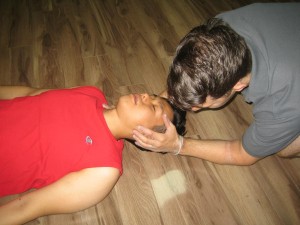It is important to note that nocturnal seizures are basically sleep-related seizures that usually occur at night time. An individual with this type of seizure can experience a burst of movement that jerks the body awake, thus disrupting the normal sleeping pattern. Take note that these seizures can occur several times at night or can be limited to certain occasions. Nocturnal seizures can be considered as a form of epilepsy, thus most of the symptoms as well as the causes are similar to epileptic seizures.
Throughout the years, doctors have utilized various tests in order to determine if an individual has epilepsy and the kind of seizure he/she has. In some cases, individuals might have symptoms that are strikingly similar to a seizure but are merely non-epileptic events triggered by other conditions.
Fever

Fever is considered as the way of the body to eliminate the invading microbes. The temperature of the body increases higher than the supportable environment for the virus or bacteria, thus occasionally killing them. It is sad to note that fever can also cause seizures especially among children. Take note that these types of episodes can develop a number of times during the day or at night, resulting to nocturnal seizures. Always remember that a child who experiences nocturnal seizures due to fever is not in danger of developing epilepsy later in life. There are first aid measures that you can perform in order to lower down the temperature of a child.
Injuries
Always take note that the skull is responsible for protecting the brain from trauma such as bumping the head or direct hit with an object. Nevertheless, great force can cause the skull to crack or cause damage to the brain. The damage sustained can result to the swelling that will surely trigger the occurrence of seizures. Nocturnal seizures can occur several years after a trauma incident. Additionally, children can also experience nocturnal seizures after sustaining a severe trauma to the head whether through a fall or if the child sustains a direct blow to the head.
Stroke and tumors that cause permanent damage to the brain can also trigger seizures. Take note that hydrocephalus is a condition where the cerebral spinal fluid accumulates in the brain, thus resulting to increased pressure. These conditions do not normally trigger nocturnal seizures but the application of a shunt to drain the fluid can lead to seizures.
Excessive alcohol and drug
Both alcohol and drugs can lead to seizures. Individuals who are alcoholic face a higher risk for seizures as well as those who are under detoxification from substance abuse. Take note that the initial nocturnal seizure can occur several hours or even up to two days after the individual stops drinking alcohol or using drugs.
